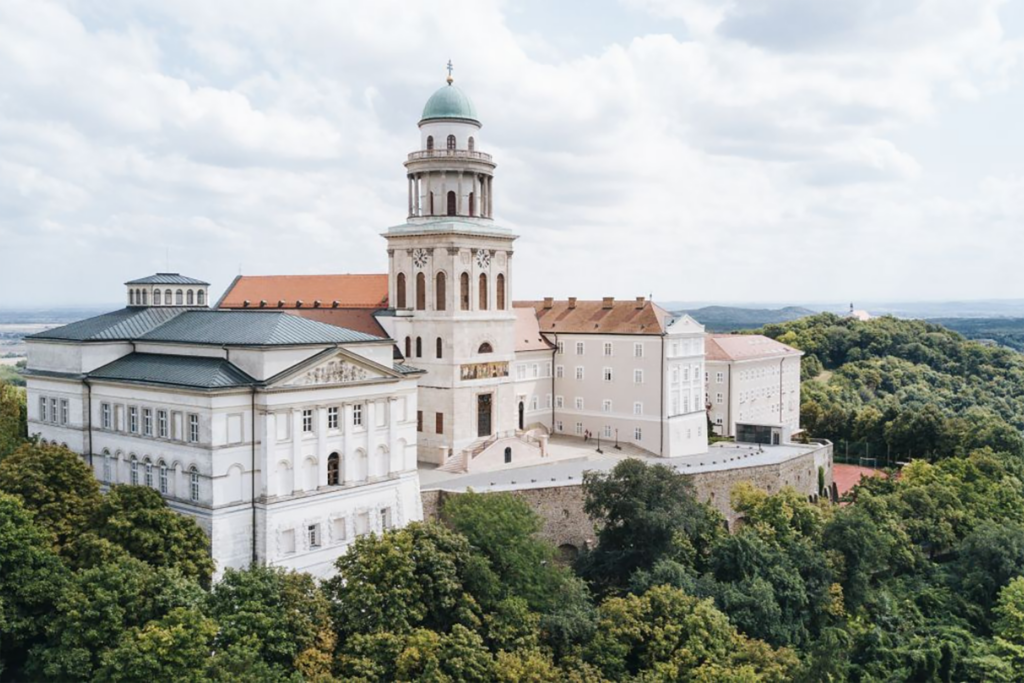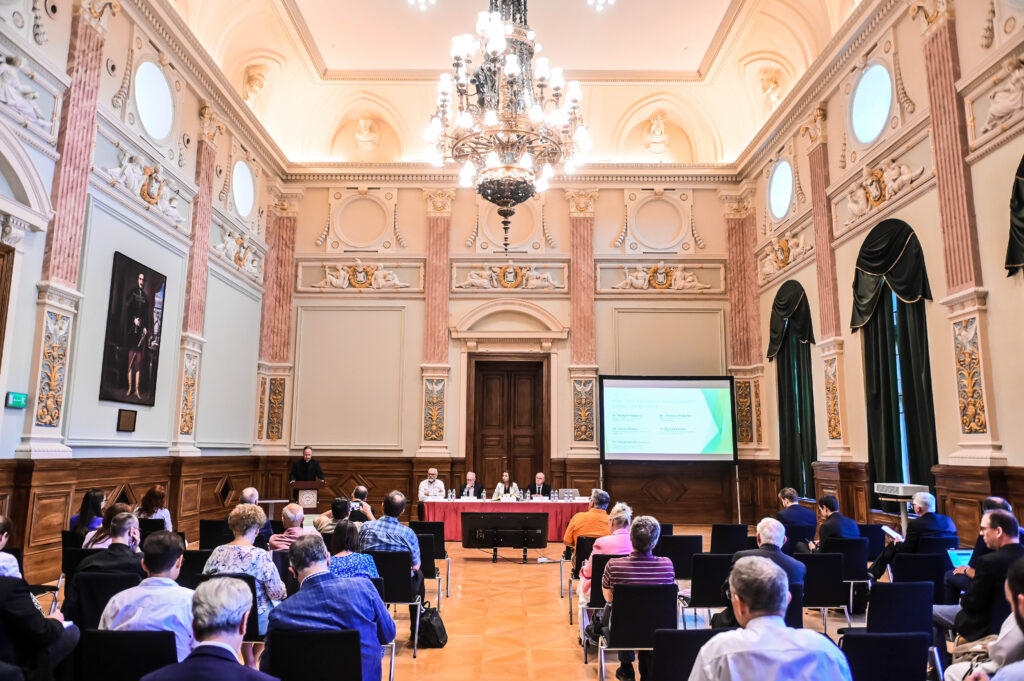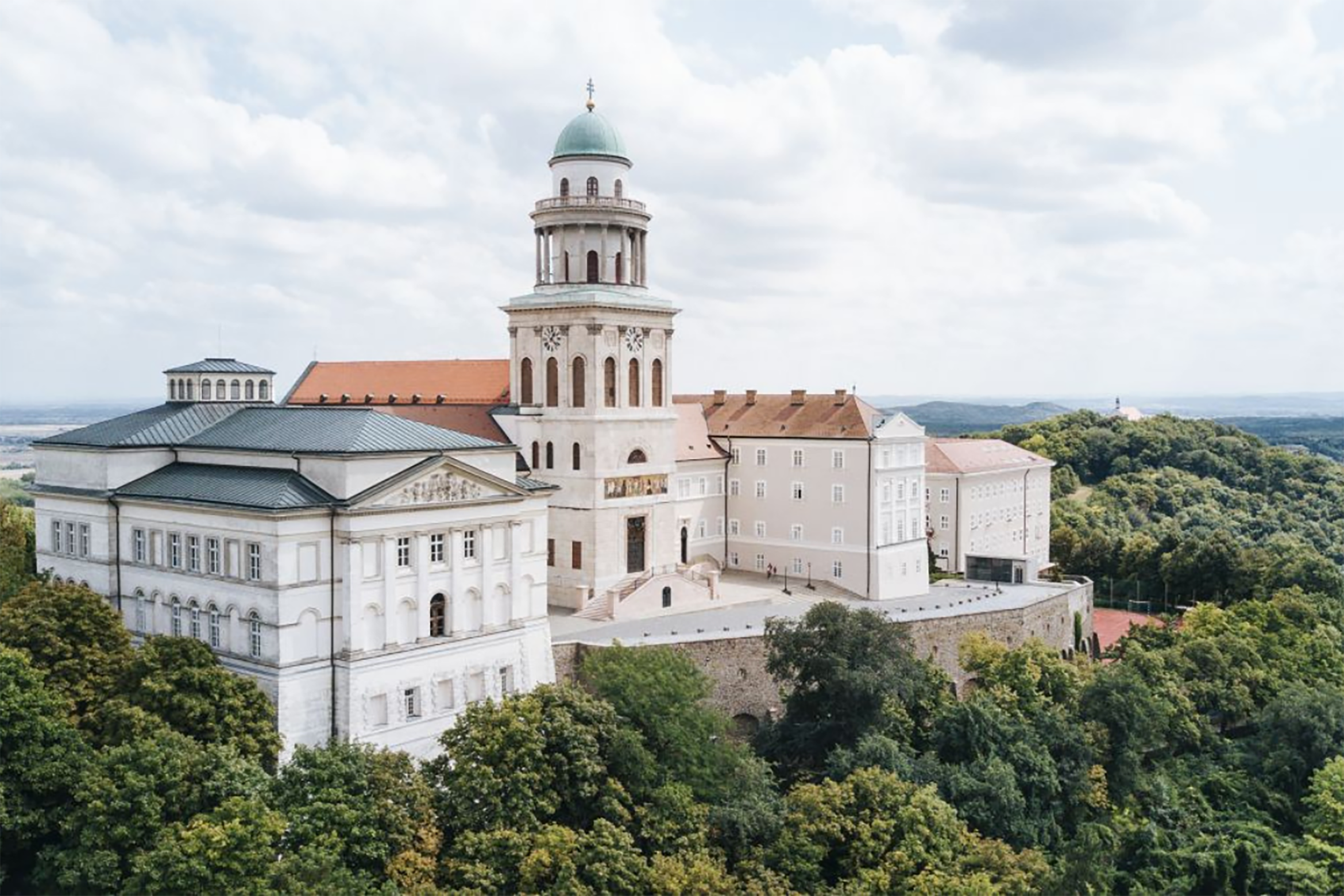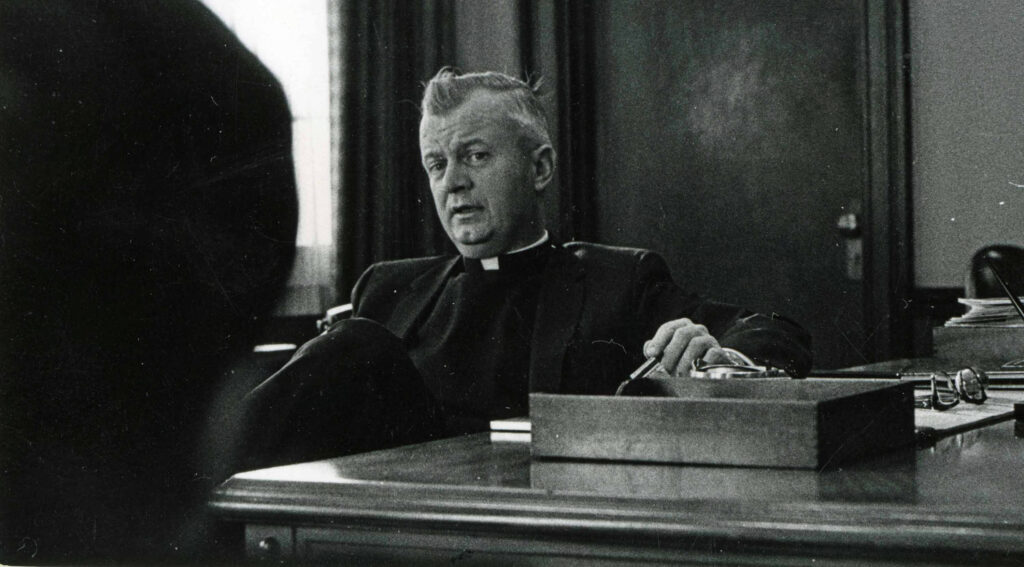This June nearly 70 academics and practitioners from 10 different countries gathered in Budapest, Hungary, for the Freedom, Subsidiarity, and Spirit of Gift conference at the University of Public Service – Ludovika. The purpose of the three-day event was twofold: to explore the principle of subsidiarity as it pertains to business and society and to renew relational ties among colleagues after a marked drought of comradery caused by the inability to be together during the height of the pandemic. Conference participants and organizers included Catholic Studies faculty and staff Dr. Michael Naughton, Monsignor Martin Schlag, Nancy Sannerud and Michelle Rash, as well as CSMA graduate student John Lucke.

Days one and two featured a familiar conference rhythm of plenary speakers and breakout sessions. Subsidiarity as a principle of Catholic social thought well illustrated its universality through the interdisciplinary nature of the gathering. Presentations included the theological roots of subsidiarity provided by Aquinas and various popes, the insight it offers for institutional conversations on diversity, its influential role in free markets, and its implementation in university classrooms as a tool for successful mentorship, among others. It was evident that the principle of subsidiarity is as applicable to the theologian as it is to the executive, to the economist and to the teacher. An ethos emerged which framed subsidiarity as a principle that involves the agency for the individual to act autonomously, the assurance of structures and systems in place to allow them to do so effectively, and the cultivation of a heart which allows them to do so generously.
Day three was spent on an excursion to the Pannonhalma Archabbey, a Benedictine monastery established in the 10th century and located 80 miles west of Budapest. The monastery is perched atop a large hill overlooking the entire town of Pannonhalma with a panoramic view of the Hungarian countryside, lending a sense of retreat to the day. The group celebrated Mass in the Basilica followed by a tour of the grounds and stroll through their famous lavender fields. To honor the Benedictine motto “ora et labora” (“pray and work”), the days of rigorous intellectual work were concluded with time in prayerful respite.

Day three was spent on an excursion to the Pannonhalma Archabbey, a Benedictine monastery established in the 10th century and located 80 miles west of Budapest. The monastery is perched atop a large hill overlooking the entire town of Pannonhalma with a panoramic view of the Hungarian countryside, lending a sense of retreat to the day. The group celebrated Mass in the Basilica followed by a tour of the grounds and stroll through their famous lavender fields. To honor the Benedictine motto “ora et labora” (“pray and work”), the days of rigorous intellectual work were concluded with time in prayerful respite.
The fine-tuning of papers and expanding of intellectual consideration were benefits to be sure. But perhaps more precious were the relationships built and strengthened in Budapest. Breaks, mealtimes, and bus rides were abuzz with attendees making points of connection between one another’s papers presented and projects back home. Among the fruits of the conference is the forthcoming special issue “Subsidiarity, Freedom, and the Logic of Gift” in the Business and Society Review.
This story is featured in the fall-winter 2022 issue of Lumen.







